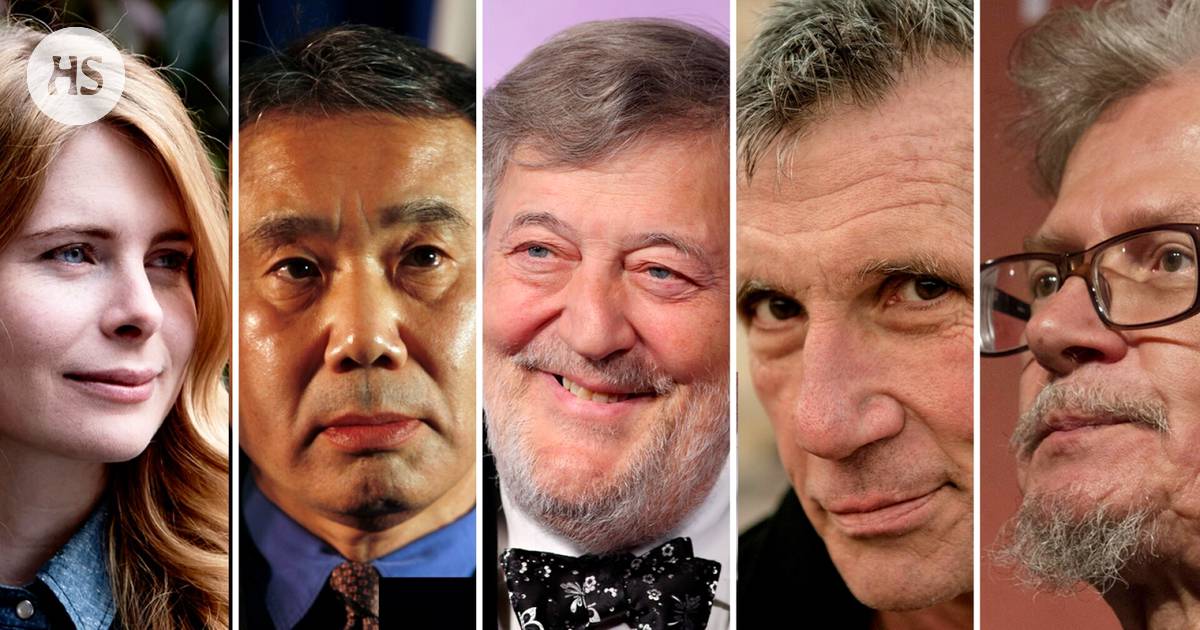Literature banned in Russia is united by the concept of sexuality. And these books are popular with readers.
Moscow Libraries have received a list of books they must destroy due to a recent law banning LGBT propaganda. This is reported by the Russian network media. There are 53 books in the document, but some of them are different editions of the same works. Therefore, under the ban – at least at the moment – 34 original compositions. The document was published earlier this week in his telegram channel “Bookman” Russian writer and publicist Sergei Lebedenko.
No explanation is provided regarding the inclusion of these 34 books in this list. However, they all share a description of sexuality. Both in fiction and documentary form.
“Everythingwhich is connected with homosexuality, is now interpreted in Russia as propaganda,” says philologist, dissertation student at the University of Helsinki Riku Toivola.
Most recently, he finished translating into Finnish the novel Oksana Vasyakina “Wound”, which also made it to the banned list. The book will be published in Suomi by the Otava publishing house in February 2023.
“Oksana is in a rather colorful company of authors. Works are also subject to removal from libraries. Michael Cunningham, Jonah Boyna, Haruki Murakami, Stephen Fry and Eduard Limonov. Of course, this did not come as a surprise to her. She only wrote on social media that she had been ill for several days, got up to read email – and after that she decided to go back to sleep.”
Roman Vasyakina, says Toivola, is about a woman who carries an urn with the ashes of her mother to Siberia and conducts an internal dialogue with her. “It has fairly explicit descriptions of her waking up from her own homosexuality.”
Riku Toivola doesn’t know why these particular books were on the list. After all, there are a large number of other works devoted to LGBT topics in the world. Perhaps the reason lies in the popularity of individual authors.
“At least Stephen Fry and Haruki Murakami have been very popular in Russia in recent decades. Although, perhaps there is no system in this.”
The English actor Stephen Fry is also a highly prolific author who has written, among other things, several memoirs. The list of books to be destroyed includes the second of three books, Fry’s Chronicles. Fry defended the idea of full marriage for members of sexual minorities.
Toivola also mentions the work of a philosopher, psychologist and sexologist Igor Kon “Introduction to Sexology”, which appeared at the turn of the 90s.
“This is one of the first explanations of the concept of sexuality in Russian. The book is still very important for gay people. I remember how it fell into my hands in the early 2000s, when I was studying in St. Petersburg. Then I felt relieved that they were talking about it in Russia as well.”
Toivola lived in St. Petersburg from 2003 to 2013. He remembers 2011 especially well, when attitudes towards homosexuality began to change. In his opinion, the law on the ban on LGBT propaganda and the list of banned books are direct consequences of the changes that began in the 10s of this century.
“Then gays began to be systematically identified with Westernism and pedophilia. This is a certain confusion of terms, confusion of worldviews, as well as the search for a common enemy.”
Toivola recalls that the decree on the destruction of books resonates in the minds of people who lived in Soviet times:
“Waste paper is a romantic memory from Soviet times: back then you could buy books by handing in a certain amount of paper for printing houses. Now these books are being turned back into waste paper.”
And even in Soviet times, the so-called “Samizdat” was widespread: the transfer of illegal copies of prohibited works from hand to hand. Today, these functions are performed by social networks, says Toivola.
“The work of Oksana Vasyakina is in demand in the West. Her books have been translated into many languages. They can be found on the Internet. Rest [авторы] will also probably continue to be published on the Web.”
Moscow libraries have been ordered to destroy the following books:
Anthony Susan Byatt. “Possess”, 1990
Chloe Benjamin. Immortals, 2018
John Boyne. “Absolutist”, 2011
John Boyne. “Stairway to Heaven”, 2018
Blanca Busquets. “Sweater”, 2006
Oksana Vasyakina. “Wound”, 2021
Daria Wilke. “Shutov’s cap”, 2013
Patricia Dunker. “James Miranda Barry”, 1999
Robert Jones Jr. “Prophets”, 2021
Banana Yashimoto. “Lizard”, 1993
Jean Genet. “Our Lady of Flowers”, 1988
Jaume Cabre. “I confess”, 2011
Michael Cunningham. “Snow Queen”, 2014
Michael Cunningham. “The Night Begins”, 2010
Emma Kline. “Girls”, 2016
Igor Kon. “Introduction to Sexology”, 1989
Agota Christoph. “Thick Notebook”, 1986
David Levitan. “Every new day”, 2012
Edward Limonov. “It’s me – Eddie”, 1979
Rebecca Mackay. “Forbidden Reading”, 2011
My hand is McCann. “Dancer”, 2003
Haruki Murakami. “My favorite satellite”, 1999
Marie-Aude Muray. “Oh boy”, 2016
Francis di Pontis Peebles. “The Air You Breathe”, 2018
Vasily Rozanov. Moonlight People, 1911
Maggie Stiever. “Ravens”, 2012
Maggie Stiever. “Dream Thieves”, 2013
Danielle Steel. “Family Album”, 1994
Sara Waters. “Velvet Claws”, 1998
Sara Waters. “Little Stranger”, 2009
Stephen Fry. “How to make history”, 1996
Stephen Fry. “The Fry Chronicles”, 2011
Stephen Chbosky. “It’s good to be quiet”, 1999
Todd Strasser. “Wave”, 1981
